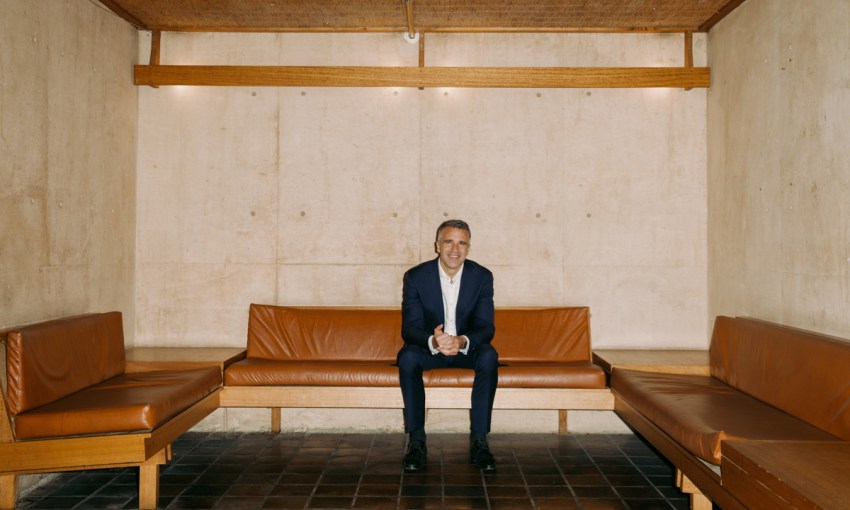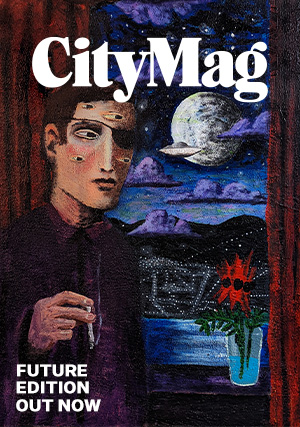What is progress to the current leader of South Australia?
Peter Malinauskas’ playbill
In 2016, I saw Saoirse Ronan fly. The actress played supernatural ringleader Abigail Williams in the Broadway production of Arthur Miller’s towering drama The Crucible.
I went with my mum, an English teacher, who described the work as an important play from an important time. It’s based on transcripts from the 17th century Salem witch trials, during which 14 suspected witches – women, some of whom were seen reading or dancing – were hanged. Released in 1950s New York, The Crucible was also an allegory for the United States government’s anti-communist paranoia, portraying the maniacal infectiousness of fear.
In a small enclave outside the University of Adelaide’s Little Theatre, Peter Malinauskas is having his portrait taken for this article. We’ve finished our formal interview and have now fallen into small talk. It’s a pleasant surprise when, looking to a collection of posters stuck to the red brick wall, he points out an upcoming university production of the play. The camera flashes. “The Crucible,” he says. The camera flashes again. “Great play.”
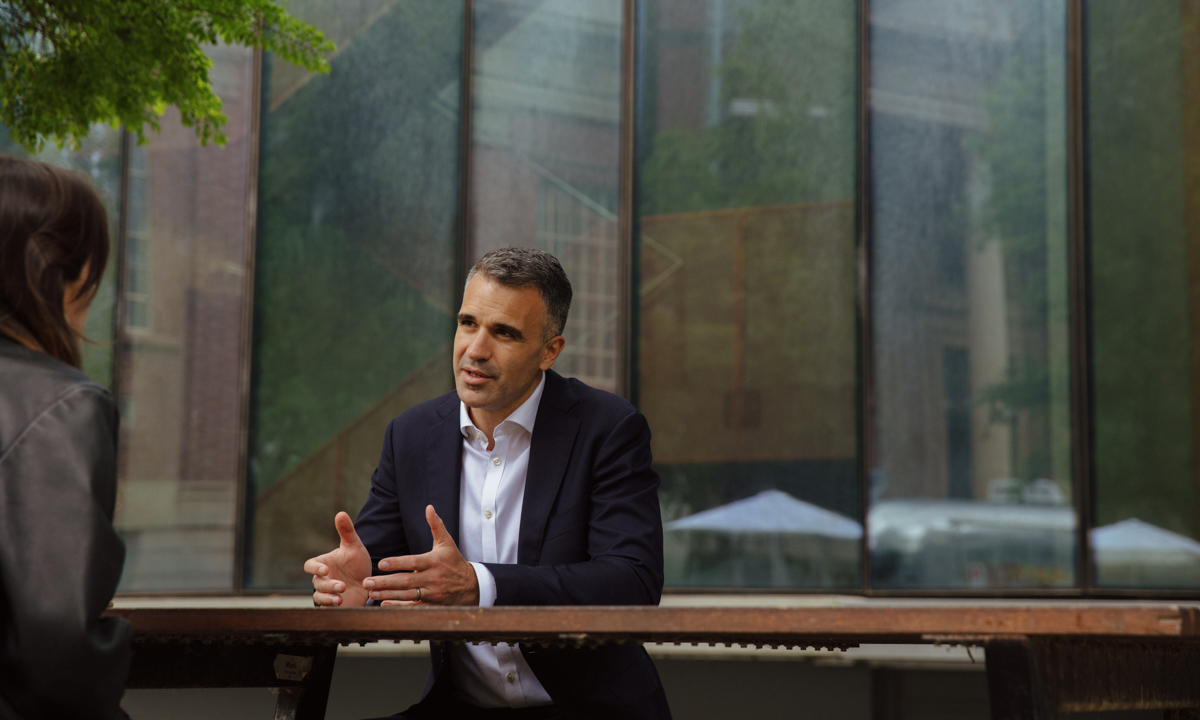
Premier Pete on the lawns
Earlier, beginning our interview sitting on a bench on the Barr Smith Lawns, Peter doesn’t come across as a politician. The Catholic father of three wears an open-collar navy suit with a naked lapel, noticeably absent of any pin. Like many South Australians, I became acquainted with the SA Labor leader during the 2022 state election campaign. He was known as shirtless, poolside Pete. It’s now seven months into his Premiership, and on the day we meet he has his shirt on. He also has big plans for South Australia’s future.
Before we start discussing his policies, he recounts some history: in 1894, South Australia became the first place in the world where women had the right to both vote and run for parliament. “The state has always had a progressive streak,” he says, banging his fist on the table for emphasis. His government wants to “capitalise” on this progress. He’ll do this by moving an equality bill in parliament by early next year designed to eliminate the gender pay gap. He also wants to use his platform to buck misplaced fears about immigration and hydrogen.
We’ve met at the university at Peter’s media team’s request. After graduating from Mercedes College as school captain in 1998, Peter completed a Bachelor of Commerce here. It was during this time Peter says the embers of his political career were first stoked. One event in particular acted as catalytic flame.
This article first appeared in CityMag‘s 2022-23 Future Edition, on streets now.
In 2001, a Norwegian freight vessel rescued 433 asylum seekers on a sinking, leaky boat under the direction of the Australian Maritime Safety Authority. The Howard Government refused to process the people on-shore, turning the boat away. This became known as the Tampa affair. It was a month before the September 11 attacks, but anti-immigration sentiment had already been building in Australia. Following Tampa were two decades of hard-line federal government immigration policies. “It upset me,” Peter says of the 2001 incident.
I ask if this had anything to do with his paternal grandfather being a Lithuanian refugee. “That definitely influences my view,” he says. Not only this, but also “because our nation’s story is very much one that is a story of immigration,” he says. “Unless you’re a member of the Traditional Owners of our land, it is an immigration story, and I think we should be proud of that and I think we should celebrate it.”
In 2023, Australia will mark one decade since Prime Minister Tony Abbott introduced Operation Sovereign Borders, the military-led response to maritime asylum seekers. As Premier, Peter wants to encourage his federal counterparts to widen Australia’s visa allowances.
“I [recently] gave a speech at the National Press Club,” he says. “One of the things I argued for was increasing our humanitarian visa intake.
“The emphasis on migration policy tends to be towards skill migration, and on one level I get that. But I don’t think that should be at the expense of serious consideration [about] what people who come on humanitarian visas does for our society as a whole.
“If you’re willing to leave the other side of the world to come to Australia, you’re not coming here for anything other than opportunity.”
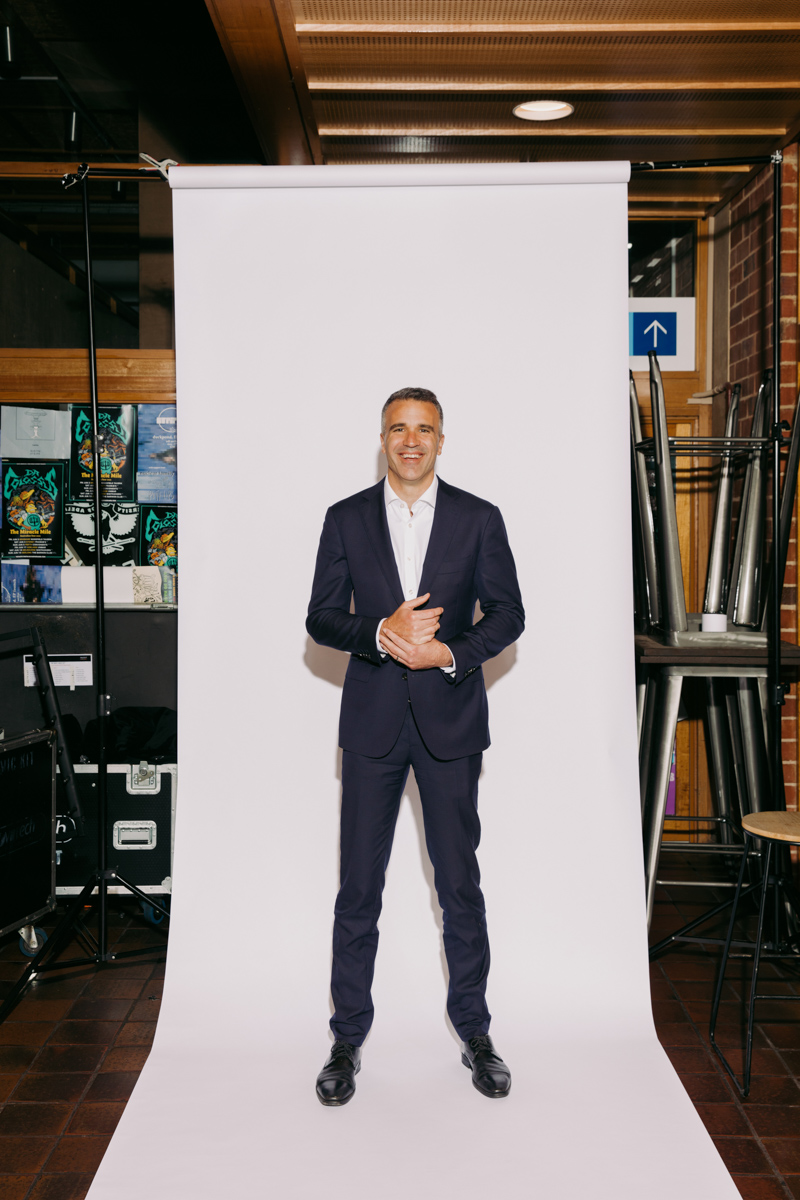
Back on campus
While studying at the University of Adelaide, Peter also gained power within the Shop, Distributive and Allied Employees Association. A one-time state-secretary of the organisation, his growing political influence was recognised by The Advertiser in 2011, the paper dubbing him a “kingmaker” for his sway in SA Labor.
Four years later, he officially entered the political fray, filling a Labor vacancy in Parliament’s Upper House. In 2018, he entered the Lower House as Member for Croydon. When Jay Weatherill vacated the top Labor job in late 2018 following an election loss, Peter swooped in as Leader of the Opposition – a role he performed with aplomb, such as in 2019 when he threw derision upon Water Minister David Speirs with adroit alliteration, booming across the chamber with a line worthy of Arthur Miller: “He grabbed the Coorong cash like a fig leaf and declared victory”. Peter’s leadership proved effective; in 2022, Labor won the state election.
Two weeks after the landslide victory, Peter told the National Press Club, when discussing his hydrogen plan, he did not want to engage in the “culture war about renewables”. An argument pervades that moving away from fossil fuels will result in job losses and a stilted economy, but Peter is more interested in the logic than the emotion of the debate. At the Press Club event, Peter, wearing a maroon tie and political pin on his lapel, told the room he did not want to pursue “short-term solutions” as a balm for the current energy crisis. He is fixed on a long-game; a play in multiple acts.
Selling the bigger picture is difficult with a topic as dry as energy policy. “If I go down Rundle Mall with you right now and we stopped a member of the public and start talking about hydrogen, there’s every chance their eyes will glaze over in two seconds flat,” the Premier says. “But I suspect that by three or four years’ time, we’ll be in a very different position as South Australia is elevated to a global leader.”
Talking about the future in this way is clearly exciting for Peter. What he wants to create in South Australia doesn’t “exist in most other parts of the world,” he says. “So everything from hydrogen production, to its storage, to its transportation, to its use, needs a legislative framework.”
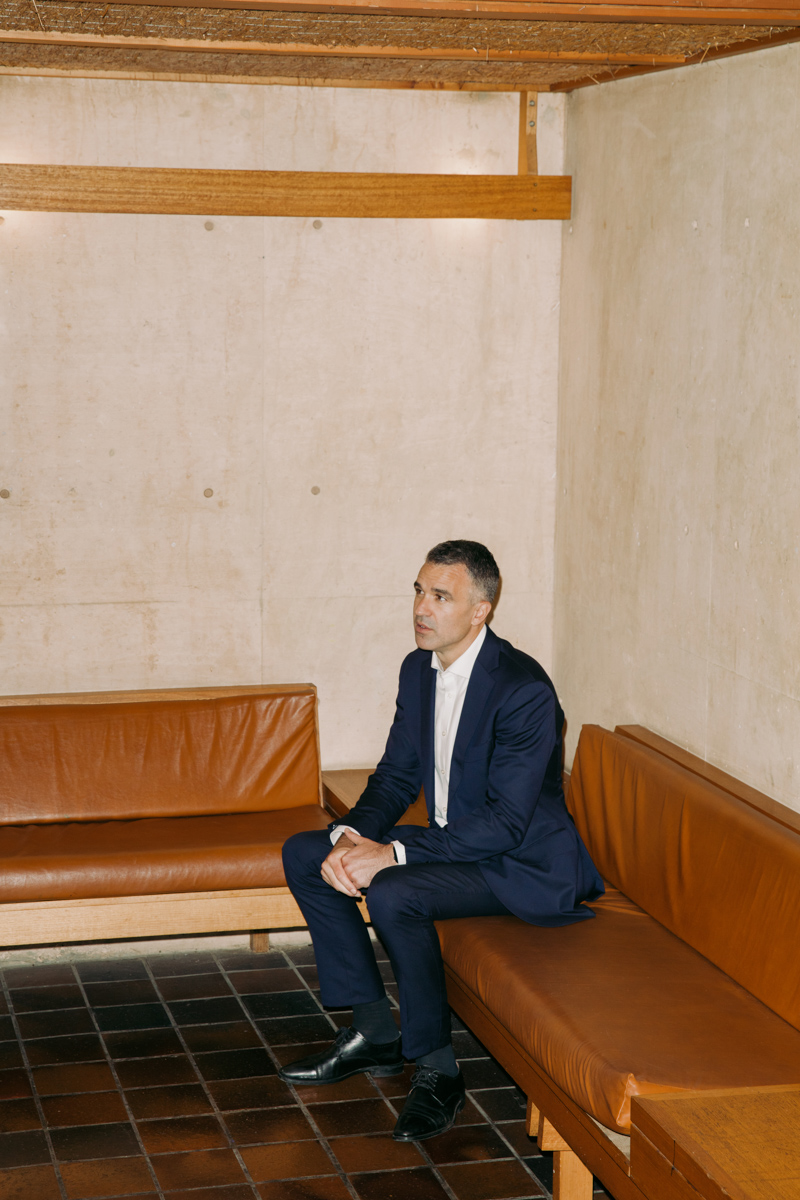
Thinkin’ ’bout the future
But not everything about Peter is so modern. Members of Peter’s cabinet, Attorney-General Kyam Maher and Deputy Premier Susan Close, have expressed interest in bringing reform to sex work laws, in response to the industry’s call for decriminalisation. Peter, however, describes sex work to me as only being exercised by “young vulnerable women” who are “exploited for the benefit of other men’s gratification”. Prostitution, as it’s termed in South Australia’s Summary Offences Act (1953), is a crime listed under “offences against decency and morality”. Proponents of sex work decriminalisation want their industry regulated for a range of reasons, such as fear of police recrimination if a worker goes to authorities for help.
Peter tells me he is against decriminalising sex work. “I struggle to see how that is progressive,” he says. This stance will not be a surprise to readers of The Australian, who earlier this year were delivered the headline: “SA’s non-woke Labor bloke Peter Malinauskas”.
Progress forks in many directions. Perhaps as the leader of a state you’re only afforded the opportunity to pursue a few. There’s a lot Peter wants to achieve as Premier, even if, in his own words, he’s not a leader “interested in legacies”. The new hydrogen industry he hopes to build is, instead, “the state’s opportunity”. Whether the reforms Peter is pursuing are the type that will fan the political flames of another young Premier-in-wait on campus, we’ll see.
We wrap up our chat and walk through the UniBar’s forecourt to where Peter will have his portrait taken. On the way, he introduces himself to a long-haired student nursing a pint. TOWNS’ ‘Safe to Say’ blares over the PA. The kid returns South Australia’s highest-ranking politician’s greeting with a thousand-yard stare.



